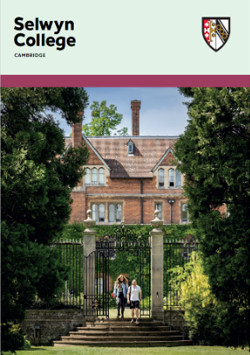Why choose the Natural Sciences course at Cambridge?
If you love sciences and want to study more than one along with some maths at university level the Natural Sciences tripos is the best way to start. Science courses are bound to be different from what you've been doing at school and it would be wise to try them out to find what you enjoy most (and are best at - the two usually go together) before you start to specialise. This is especially true if you're thinking about courses like Materials Science, Earth Sciences, Biochemistry and so on that you won't be studying at school.
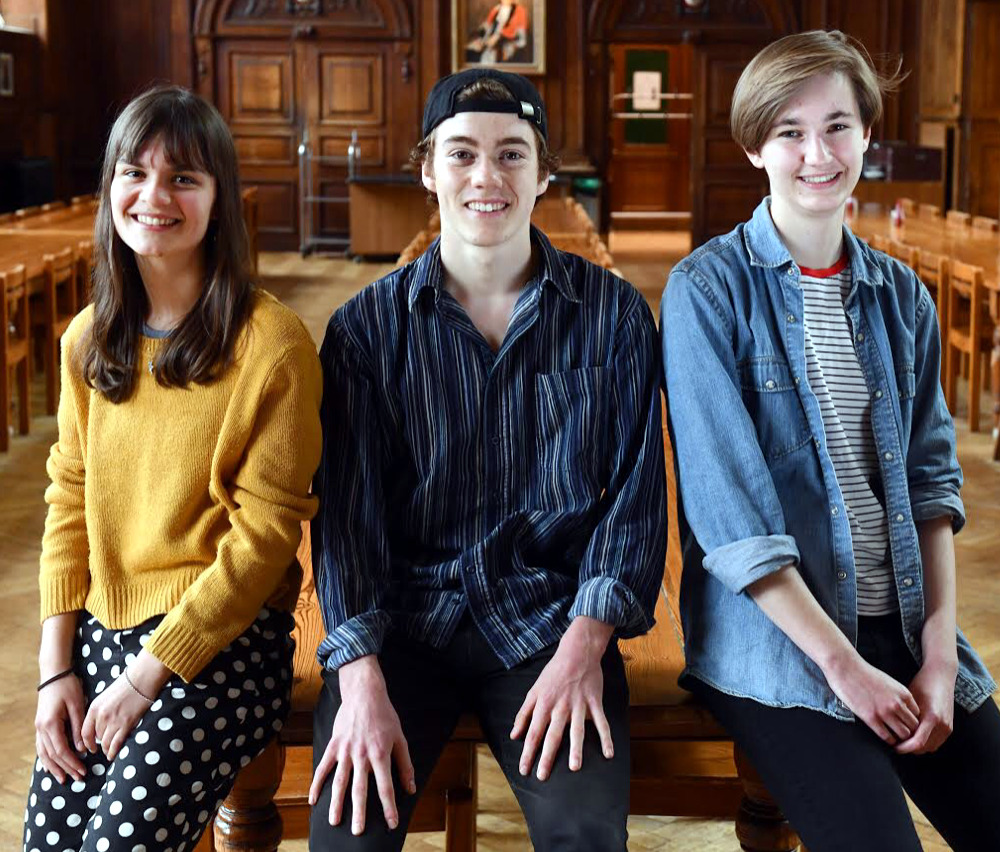 How is Natural Sciences taught?
How is Natural Sciences taught?
You'll have a high number of contact hours so will be doing a lot of work - it's the way to lay the foundation for a lot of scientific understanding very quickly. It's likely that each week in your first year you'll be doing 12 hours of lectures, 4 hours of supervisions and about 8 hours of practicals. You will also be spending many hours getting ready for those supervisions. The work load is similar in later years. You have to love science to be able to keep up this work rate and you are going to learn some really interesting science. Most of the work is focused on solving problems (rather than memorising things) so if you are a thinker and problem solver rather than memoriser you will probably get on well in the course - although of course being able to remember what was in the lecture notes is going to be a key skill.
What about Natural Sciences at Selwyn?
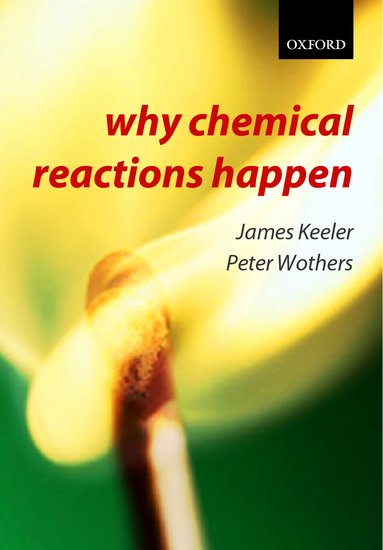
textbooks in your school library
There's a critical mass of scientists at Selwyn - but not too many, we all know each other. We have a good number of undergraduates, PhD students, post-doctoral researchers and Fellows - there's a good team spirit and we all recognise the best way to do science is collaboratively by working together and that the idea of the lone genius working away in cerebral isolation is a myth. In addition to the strong academic focus on science we get on with a wide range of other activities: sport from 'friendly kickabout' up to University Blue level, music from 'ukulele beginner' up to University ensemble and so on - as well as an active Natural Sciences society. One thing you should know about the PhD students, post-docs and Fellows is that we take teaching very seriously and want our students to get the best possible education through our supervisions, lectures and textbooks; this should probably be one of your most important considerations when choosing any undergraduate university or course.
The subject at Selwyn
The Cambridge Natural Sciences course is unique in the way it approaches the study of science at University level. As a Natural Scientist, you do not start out already pigeon-holed as a physicist, biologist or earth scientist, but are given the opportunity to experience different areas of science at University level before you finally settle on one particular area of specialization.
At Selwyn we believe very strongly in this approach, and think that it is very much in your interests to be as adventurous as possible in exploring the different possibilities that the course allows.
The Teaching Fellows
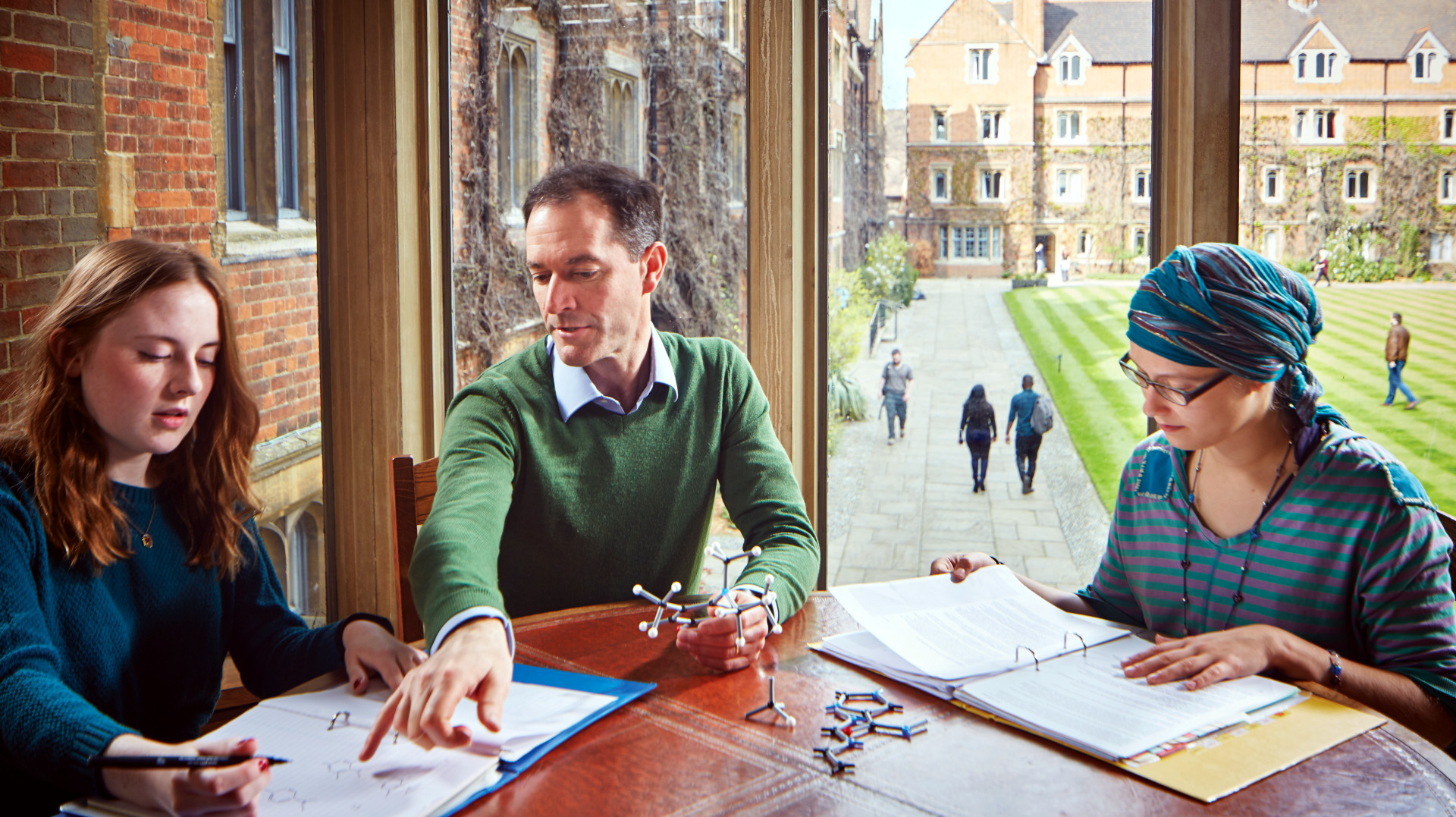 At Selwyn we have a wide range of teaching Fellows who cover all of the major subject areas. Our Natural Scientists include Daniel Beauregard (Chemistry), Nicholas Butterfield (Earth Sciences), Eloy de Lova Acedo (Astrophysics), Lynn Dicks (Ecology and Conservation), Paul Elliot (Zoology), Sheila Flanagan (Experimental Psychology), Marta Halina (Psychology and Cognitive Science), Alex Jenkins (Tehoretical Physics), James Keeler (Chemistry), Rosie Lester (Materials Sciences), Noel Rutter (Materials Science), Stewart Sage (Cell Physiology), Matthew Smith (Mathematics for Natural Sciences), Carrie Soderman (Geochemistry and Petrology) and Deepak Venkateshvaran (Mathematics and Physics).
At Selwyn we have a wide range of teaching Fellows who cover all of the major subject areas. Our Natural Scientists include Daniel Beauregard (Chemistry), Nicholas Butterfield (Earth Sciences), Eloy de Lova Acedo (Astrophysics), Lynn Dicks (Ecology and Conservation), Paul Elliot (Zoology), Sheila Flanagan (Experimental Psychology), Marta Halina (Psychology and Cognitive Science), Alex Jenkins (Tehoretical Physics), James Keeler (Chemistry), Rosie Lester (Materials Sciences), Noel Rutter (Materials Science), Stewart Sage (Cell Physiology), Matthew Smith (Mathematics for Natural Sciences), Carrie Soderman (Geochemistry and Petrology) and Deepak Venkateshvaran (Mathematics and Physics).
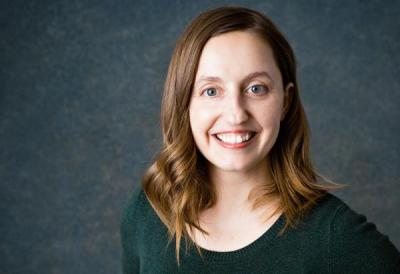
We or our Selwyn PhD students are able to provide most of the supervision for the first- and second-year courses either in house, or with the aid of carefully selected external supervisors. As a result, the standard of supervision we offer is very high. Supervisions in the later years of the courses are generally arranged through the departments, as this is where the relevant specialists will be found.
As well as teaching and organising teaching for Selwyn, all of these Fellows may carry out research in their own departments. Like the Natural Sciences course, their research interests cover a very wide spectrum.
Qualities we are looking for
We are looking for a genuine commitment to and interest in science; we are looking for people who are fascinated by the physical and natural worlds, and who want to find out and understand more about them.
We expect you to have a good track record in science, and not to be afraid of hard work. Above all, we are looking for people who have the potential to think scientifically and critically about the world around them.
Admissions Assessment - ESAT
As at other Colleges, applicants will be asked to take the ESAT (Engineering and Sciences Admissions Test). You must take the first sitting of the test. You must be registered in advance (separately to your UCAS application) to take the assessment. The test is taken at your local Pearson VUE test centre. Please see the UAT-UK website for full and further details.
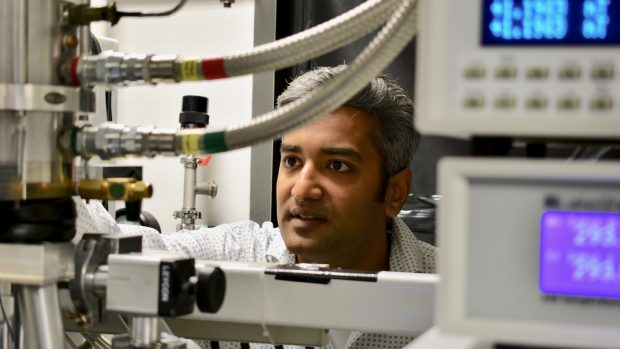
in the Cavendish laboratory
Interviews
Typically you can expect to have one or two scientific interviews, together with a shorter general interview. The longer interviews will concentrate almost exclusively on scientific matters; we will be trying to assess how you think and the level at which you can work. Typically, you will be presented with problems or scenarios to discuss. These problems are open ended, and to answer them is not a matter of factual recall, but rather you will need to put together things you know and information you are given. We are most interested in your ability to use the knowledge that you have in new and possibly unfamiliar situations. The interviews will cover a range of scientific topics appropriate to the subjects you are studying at school or college.
The general interview is designed to learn about your interests and activities outside Natural Sciences, your motivation in choosing to study Natural Sciences at Cambridge and the maturity of your approach towards academic work.
On your additional questionnaire you are asked to describe yourself as “physical” or “biological” to help us in setting up the interviews. If you describe yourself as “biological” the interview topics will mostly be from areas of biological sciences, while if you describe yourself as “physical” the topics are likely to include physics, chemistry and allied physical sciences. There is likely to be a mathematical component to either set of interviews.
In any case you could find yourself working through problems that have not been part of your school experience and the aim will be to see how you think as a scientist when presented with new material. If you find it difficult to decide which category to put yourself in, please contact the Admissions Officer before submitting your application. The “physical” and “biological” labels in no way restrict your choice of subject if you are admitted to the course.
Subject requirements
The course is designed for natural scientists who have a strong and broad interest in science. Therefore you will need A-Levels /IB HL (or the equivalent) in:
- Mathematics;;
- Two other science or mathematics subjects (Biology, Chemistry, Physics, Further Mathematics.
- Note that for a Natural Scientist, two sciences and mathematics A-Levels (perhaps double mathematics), is likely to be a better preparation than one science and double mathematics. Although Selwyn does accept applications from candidates with both A-Level profiles.
[July 2025]


